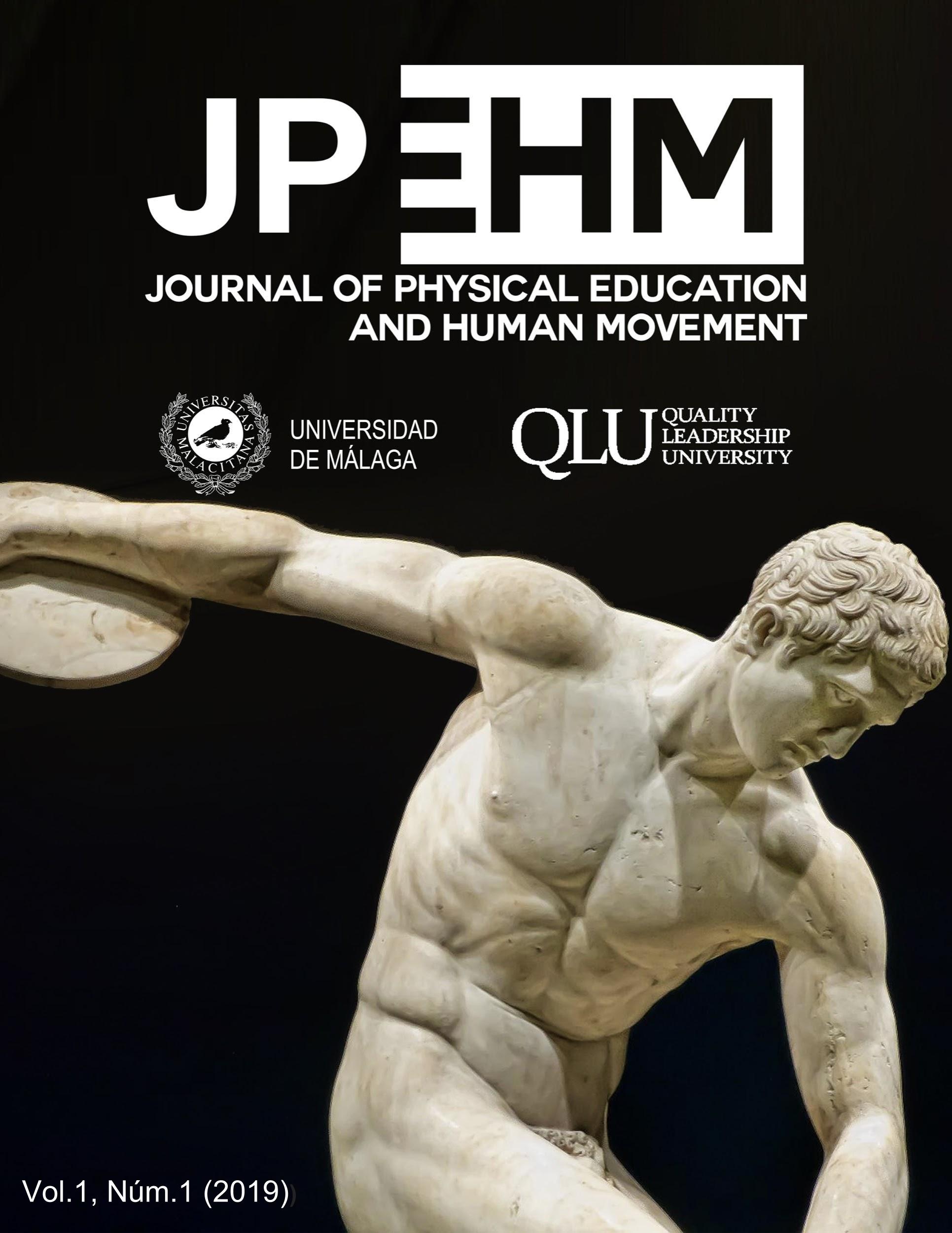ORGANIZATION AND FUNCTIONING IN A COLLECTIVE SPORTS CLUB TO FACILITATE SUCCESS
DOI:
https://doi.org/10.24310/JPEHMjpehm.v1i1.5499Keywords:
training, team, competition, professionalismAbstract
The organization and functioning of a sports club is not as clear and simple as might be anticipated a priori. An analysis has been carried out on the aspects to take into account when working in a sports club from the board, through the coaching staff and players, to the most specific aspects of training and competition. With this alone, success in the competition will not be achieved, but there are various points or fields to be addressed, which are of great importance to facilitate this achievement. The functions that each member of the technical staff must have, as well as the different management departments of the club, are added. The objectives have been (I) to determine the different parameters to be taken into account in a sports club, (II) to describe functions and characteristics of the different professional positions and/or parameters mentioned and (III) to encourage professionals in the sports field to achieve sporting success in his club. To finish, it is concluded that aspects such as professionalism in the different areas of the club, interdisciplinary and collaborative work, as well as a good working environment, are fundamental aspects to take into account when wanting to reach this achievement.
Downloads
Metrics
References
Alonso, R. F. y León, S. (2001). Experiencias en la formación de profesionales de la educación física para el área de la rehabilitación. Revista EF deportes, 42. Recuperado de http://www.efdeportes.com/efd42/exp.htm
Campos, A. (2004). Los recursos humanos en la gestión de actividad física y deporte: Situación de los profesionales de la actividad física y el deporte y problemas a resolver. En G. Brizuela, J.F. Guzmán y S. Llana (Eds.), III Congreso de la Asociación Española de CIENCIAS DEL Deporte “Hacia la Convergencia europea” [C.D.] Valencia: Facultad de Ciencias de la Actividad Física y el Deporte de Valencia.
Campos, A. y Lalín, C. (2011). El licenciado en ciencias de la actividad física y del deporte como readaptador físico- deportivo. Revista internacional de medicina y ciencias de la actividad física y del deporte, 12 (45), 93- 109. Recuperado de https://repositorio.uam.es/bitstream/handle/10486/8748/46606_7.pdf?sequence=1
De La Vega, R., Román, M., Ruiz, R. y Hernández, J.M. (2014). ¿Cómo perciben los entrenadores de fútbol el rol del psicólogo del deporte?. Revista Cuadernos de Psicología, 14 (2). Recuperado de http://scielo.isciii.es/scielo.php?pid=S1578-84232014000200004&script=sci_arttext
ESCUELA CF ALCOBENDAS. Reglamento interno. Recuperado de https://academiafutbolalcobendas.es/reglamento-interno/
Gómez, S. y M. Opazo (2007). Características estructurales de las organizaciones deportivas. IESE Business School, 704. Recuperado de https://media.iese.edu/research/pdfs/DI-0704.pdf
Martínez, I. Apuntes Teoría del Entrenamiento. Facultad de Ciencias de la Actividad Física y del Deporte. Universidad de León. Curso 2012-2013
Muñoz Marín, A. (2001). Reflexiones sobre la preparación física del futbolista: objetivos y métodos. Revista EF deportes, 34. Recuperado de http://www.efdeportes.com/efd34/prefut.htm
Nuviala, A. y Legaz, A. (2002). La preparación psicológica y el preparador físico de un deporte colectivo. Revista EF deportes, 47. Recuperado de http://www.efdeportes.com/efd47/psic1.htm
O’Brien, D. y T. Slack (2004). The emergence of a professional logc in english rugby union: The role of isomorphic and diffusion processes. Journal of Sport Management, 18 (1), 13-39.
Paredes, V. (2004). Papel del preparador físico durante la recuperación de lesionados en el fútbol profesional. Revista EF deportes, 77. Recuperado de http://www.efdeportes.com/efd77/lesion.htm
Rivera, V. (2008). La figura del primer entrenador, segundo entrenador y secretario técnico. Recuperado de http://www.educaciofisica.com/138_valero_1_2_entrenador.htm
Roffé, M. (1999) Psicología del jugador de fútbol. Con la cabeza hecha pelota. (3ª ed.) Buenos Aires: Lugar Editorial
Roffé, M. (2001). El psicólogo deportivo incluido en el cuerpo técnico: un delicado equilibrio. Revista EF deportes, 42. Recuperado de http://www.efdeportes.com/efd42/psd.htm
Vera- García, F.J, Barbado, D., Moreno- Pérez, V., Hernández- Sánchez, S., Juan- Recio, C. y Elvira, J.L.L. (2015). Core stability. Concepto y aportaciones al entrenamiento y la prevención de lesiones. Revista Cuadernos de Psicología, 14 (2). Recuperado de http://scielo.isciii.es/scielo.php?pid=S1888-75462015000200006&script=sci_arttext&tlng=pt
Downloads
Published
How to Cite
Issue
Section
License
Aquellos autores/as que tengan publicaciones con esta revista, aceptan los términos siguientes:
- Los autores/as conservarán sus derechos de autor y garantizarán a la revista el derecho de primera publicación de su obra, el cuál estará simultáneamente sujeto a la Licencia de reconocimiento de Creative Commons que permite a terceros compartir la obra siempre que se indique su autor y su primera publicación esta revista.
- Los autores/as podrán adoptar otros acuerdos de licencia no exclusiva de distribución de la versión de la obra publicada (p. ej.: depositarla en un archivo telemático institucional o publicarla en un volumen monográfico) siempre que se indique la publicación inicial en esta revista.
- Se permite y recomienda a los autores/as difundir su obra a través de Internet (p. ej.: en archivos telemáticos institucionales o en su página web) antes y durante el proceso de envío, lo cual puede producir intercambios interesantes y aumentar las citas de la obra publicada. (Véase El efecto del acceso abierto).







15.png)
